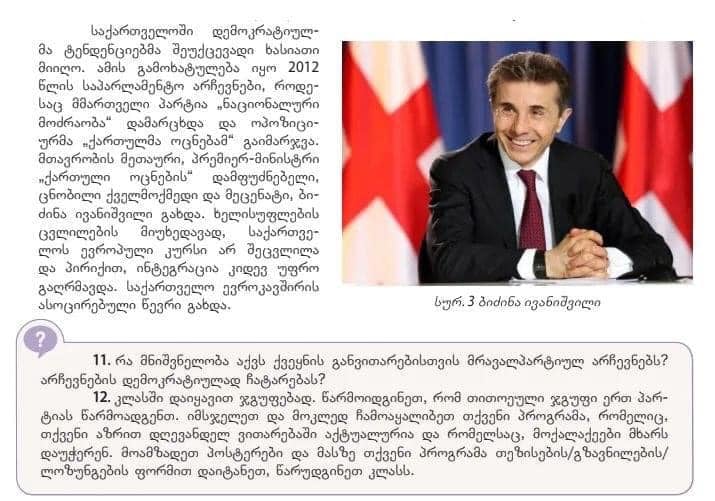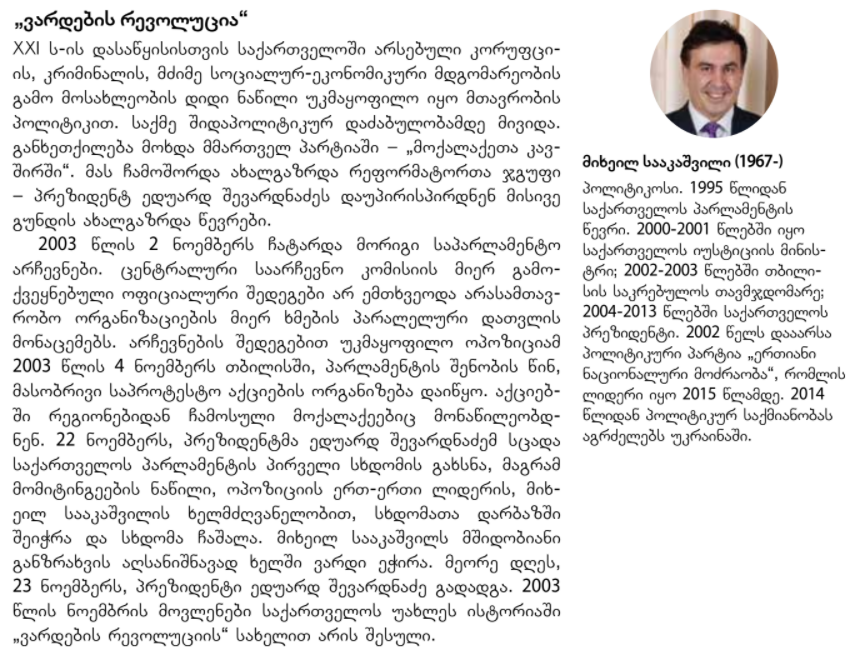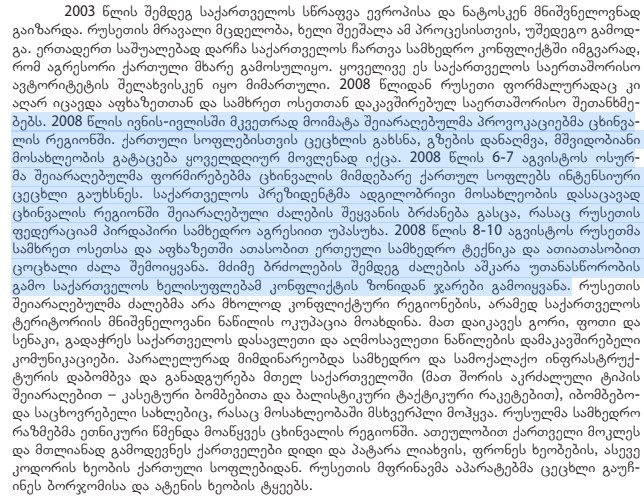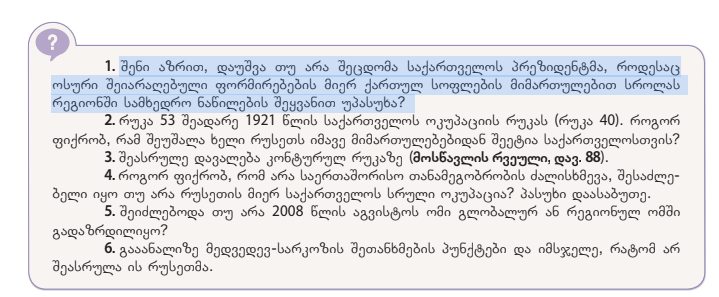"Remove propaganda book from school program!" - Opposition protests chapter on ruling party founder
Protest over section on ruling party founder in Georgian history textbooks
The opposition Droa Party held a protest in front of the Ministry of Education. Party leader Elena Khoshtaria and the protesters called on the ministry to immediately remove the history textbook, approved in 2020, from the curriculum, because, according to them, the description of the 2012 events presented in the textbook is propaganda.
“We see propaganda messages in the 9th-grade history textbooks. It focuses on the biography of [the leader of the ruling party, former prime minister and billionaire] Bidzina Ivanishvili. But we also see information about the [2008] war in this book which is presented in such a way as if Georgia was to blame for this war, which is very dangerous. There is also an interview with a representative of an ethnic minority, which leaves a lot of room for various interpretations.
I think it is very dangerous to put propaganda in textbooks, we ask more specialists in the field of education, historians to work on the issue and provide balanced, real information. It is necessary to provide factual information in schools, not propaganda”, Tamaz Akhobadze, a rally participant and member of the Droa party, told the online agency Publica.
The Ministry of Education and Science says that the Georgian history textbook for 9th grade, criticized by the public for describing the events of 2012, “correctly, competently and comprehensively describes the historical processes”.
According to the department, new history textbooks for the 9th grade examine the period of the modern history of Georgia, including the last years after the declaration of independence: the reign of the first president Zviad Gamsakhurdia, the conflicts in Abkhazia and South Ossetia, the reign of the second president Eduard Shevardnadze, the beginning of the country’s Western course, the Rose Revolution, the peaceful change of power and the facts related to the activities of the third president.
According to the deputy of the ruling Georgian Dream party Aluda Gudushauri, Bidzina Ivanishvili should be included in the history book, because he played “a significant role in the history [ of the country]”, unlike President Saakashvili.
“Shouldn’t he be there? I think everyone should familiarize themselves with this history textbook … If something in this history textbook is wrong and does not reflect reality, it is the absence of the “exploits” of Mikhail Saakashvili, for which he was convicted and for which he is still being tried”, Gudushauri said.
- Has Georgia’s ‘grey eminence’ really left politics?
- Proportional representation elections and an iron fence — what will this Georgian parliament be remembered for
What is written in the history textbook for grade 9
In the 9th-grade history textbook of the Diogenes publishing house, which, in 2020, was awarded the right to publish the textbook by the Ministry of Education, Bidzina Ivanishvili is called a “benefactor and patron of the arts”.
“[In 2012] Bidzina Ivanishvili, the founder of the Georgian Dream, a well-known philanthropist became the head of the government, the prime minister. Despite the change of government, Georgia’s European course has not changed, but, on the contrary, [the country’s European] integration has deepened even more”, reads the textbook on page 410.

The book also tells about the “Rose Revolution” and the rule of Saakashvili’s United National Movement party. In particular, it is said that the government defeated corruption and carried out important reforms, although it also made some mistakes:
“Along with the successful fight against corruption, unjustified arrests began, and several murders took place under the pretext of fighting crime. But high-ranking officials of the Ministry of Internal Affairs were not punished. Prime Minister Zurab Zhvania died under suspicious circumstances. The prosecutor’s office won 99% of court cases. Human rights were frequently violated. The protests of the disgruntled population began. Activists attending these rallies were often arrested and jailed for no reason. Lawlessness reigned in prisons, which manifested itself in psychological and physical violence against prisoners”, the textbook says.

The book, published by Diogenes Publishers, also examines the August 2008 war. The textbook says that on August 6-7, ‘Ossetian armed formations’ opened fire at Georgian villages near Tskhinvali.
“In June-July 2008, armed provocations in the Tskhinvali region sharply increased. Shelling of Georgian villages, mining of roads, abduction of civilians has become commonplace. On August 6-7, 2008, Ossetian formations opened fire on Georgian villages near Tskhinvali.
The President of Georgia ordered the deployment of armed forces in the Tskhinvali region to protect the local population, to which the Russian Federation responded with direct military aggression. On August 8-10, 2008, Russia deployed thousands of units of military equipment and tens of thousands of servicemen to South Ossetia and Abkhazia. After heavy fighting, the Georgian authorities withdrew their troops from the conflict zone due to the obvious inequality of forces”, the book says.

In the same textbook, students are asked to answer the following question: “In your opinion, was the President of Georgia mistaken when he responded to the shelling of Georgian villages by Ossetian armed formations by introducing military units into the region?”



















